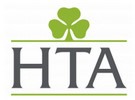The common user charge will be introduced on April 30, 2024, for commercial movements of animal products, plants, and plant products through the Port of Dover and Eurotunnel. This was announced by the UK government on April 3. Commenting on this announcement, James Barnes, HTA Chairman, said:
"While it is welcome that it has at last been published, the Common User Charge (CUC) announcement at the eleventh hour confirms our fears that in just one month, UK horticulture's competitiveness will be again hit by a cost hike for no material gain. 90% of our growers import plants at some stage of the growing cycle. Nearly 100% are SMEs and, in theory, subject to 100% checks and charges. Today, they have near 0% access to the easements or alternatives to BCP usage.
"The CUC will levy a fee for every consignment eligible for inspection that enters Great Britain via the short straits route, regardless of whether the consignment is inspected at the Sevington Border Control Point (BCP). The fee is a user fee and will be charged at a rate of £29 per commodity line, capped at £145 per IPAFFS prenotification for all high and medium-risk goods (i.e., plants, seeds, bulbs & cut flowers). Our sector typically has multiple commodity lines per consignment, meaning, in reality, businesses in our sector will be paying the £145 maximum charge. This will be a huge new cost burden for many, hitting SMEs hard, particularly those using groupage. We are now working with our members to understand the details and impacts of the announcement. In due course, we expect to see port operators running commercial BCPs, who have also been awaiting this announcement, to share more information on their charges.
"While it is a relief that we at last have the headlines of the CUC, we await further detail and guidance. Developed without a full year of robust data set to determine true cost-recovery calculations, it is a policy that feels like it is constructed on the back of an envelope at best. Anyone who understands the seasons and the basics of nature will know what and how much we import differs throughout the year, hence the criticality of an annual data set on which to base this policy. As a sector expecting to be the highest user of BCPs, a majority of which are SMEs already experiencing wider increased cost pressures, we had sought an early announcement for business planning and certainty, a simple and proportionate approach per phytosanitary certificate.
"The CUC, while critical, is just one part of the jigsaw of the April border changes, a puzzle that is far from solved. BCPs do not have the capability to handle many of our loads, let alone the volumes, and we have no details on the so-called pragmatic approach. The pragmatic approach lacks any public detail or communication to give confidence or certainty that the lack of capacity or capability of BCPs to handle plants will not cause irreparable damage to an industry hit by extraordinary cost hikes this spring. This CUC announcement and border changes come at the worst time. The charges will undoubtedly increase costs, potentially reduce consumer choice, and increase the likelihood of empty shelves, thereby impacting biodiversity and meeting our nation's environmental targets."
More details are on the Government website: https://www.gov.uk/guidance/common-user-charge-rates-and-eligibility
For more information:  Horticultural Trades Association
Horticultural Trades Association
www.the-hta.org.uk
